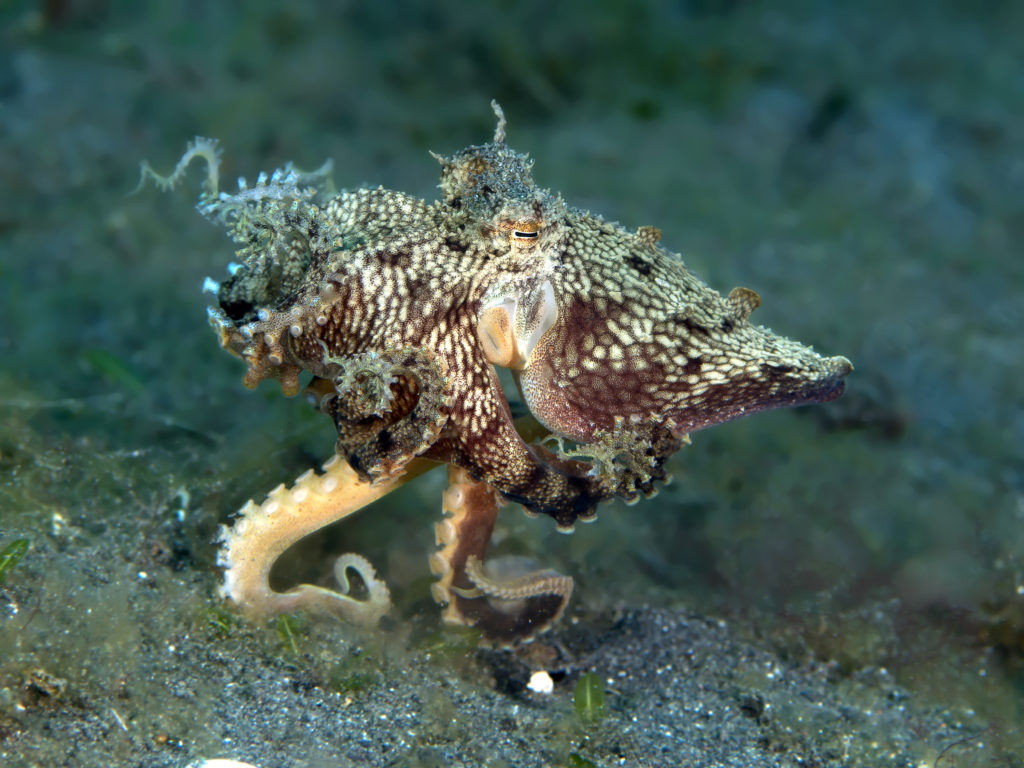The mimic octopus is quite small, only about two feet long (60 cm), including arms. They most commonly appear as striped white and brown. They’re known for remarkable camouflage abilities. Not only can they alter the shape and texture of their body, they can also take the shape and behavior of various animals in their environment. They will also imitate the behavior, speed and swimming pattern of the creature they are impersonating.
Mimicking a poisonous creature comes in handy to scare off predators, such as lionfish, sea snakes or soles. The talented and intelligent octopus will also pick the creature most likely to scare off whatever is threatening its safety in order to ensure its survival.

The mimic octopus lives on a rich, sandy bottom, where it can feed on prey like crabs, worms and small fish. It also uses its tentacles to reach in holes and corals in order to capture prey.
Like other octopus species, the male places a sac of sperm inside the female’s mantle. The males usually survive only a few weeks after this process. The female will carry the sac until the eggs are ready and will use the sperm to fertilize them. The female dies shortly after the eggs are ready to hatch, so young mimic octopus must survive on their own.
Where are they?
Scientists discovered and documented the mimic octopus less than 20 years ago. These photogenic cephalopods are common in Indonesia, but you can also find them elsewhere in the Indo-Pacific, from Egypt to Australia. Your best chance to see one is in muck diving areas in Indonesia, such as Lembeh, Sulawesi and some parts of Bali.
Why are they interesting?
If you are lucky enough to observe one in the water, you may get the chance to observe its fascinating behavior. But even if not, just watching one glide over the seafloor is a treat. As you’d imagine, mimic octopus are quite difficult to spot, although they’re not uncommon, so count yourself lucky if you see one.

